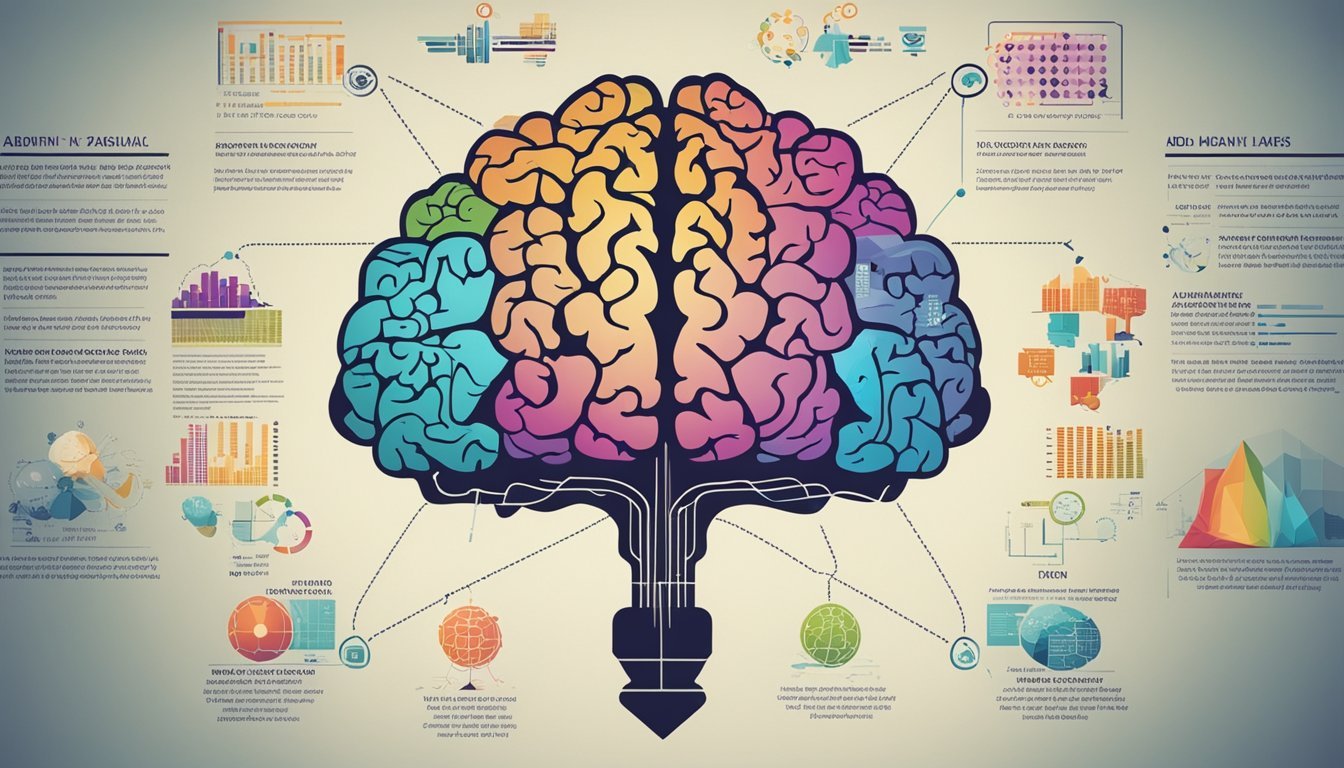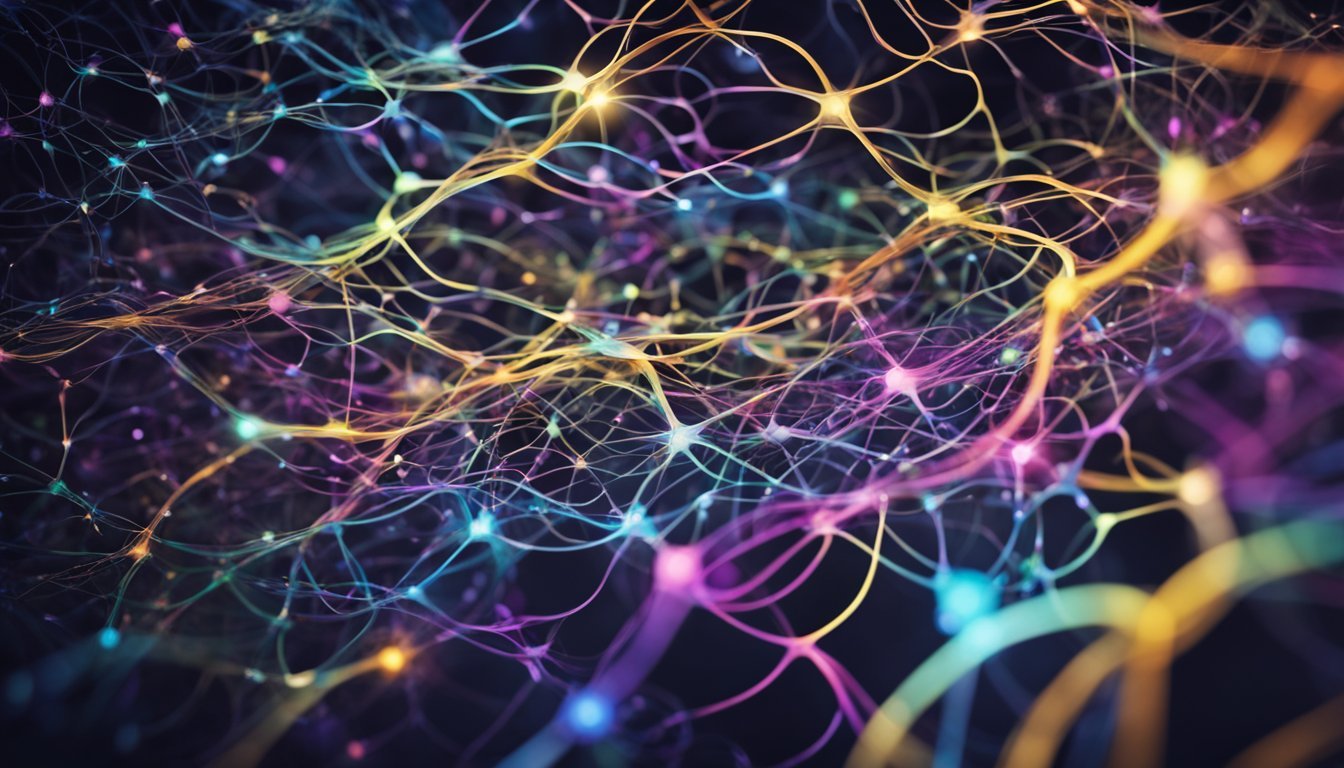6 Documentaries That Discuss the Science Behind ADHD
Insightful Viewing Choices
Exploring the complexities of Attention Deficit Hyperactivity Disorder (ADHD) through documentaries provides valuable insights into the condition's scientific foundations. These films often weave together the history, neurological aspects, and ongoing research, offering viewers a comprehensive understanding of ADHD.
Documentaries offer a unique lens through which to comprehend the diverse experiences of individuals with ADHD, underlining the significance of scientific perspectives. By featuring expert testimonials and personal stories, these documentaries help demystify a condition that affects a significant portion of the population.
1) 'Take Your Pills' directed by Alison Klayman (2018)
"Take Your Pills" highlights the growing prevalence of cognitive-enhancement drugs in contemporary society, particularly focusing on Adderall. This documentary, directed by Alison Klayman, draws attention to the widespread use of psychostimulant medications among college students and working adults.
The film delves into the societal and cultural pressures that drive individuals to use these substances. It examines the competitive environments of education and work, where many seek an edge through medication.
Interviews with individuals who use stimulants reveal personal experiences and perspectives on both the benefits and drawbacks of these drugs. This documentary sheds light on the complex relationship between performance-driven cultures and pharmacological aids.
For more information, visit Wikipedia or IMDb.
2) 'ADD & Loving It?!' featuring Patrick McKenna (2009)
'ADD & Loving It?!', released in 2009, presents a distinctive approach to explaining ADHD. Directed by and starring comedian Patrick McKenna, the documentary uses humor and personal storytelling to address both the science and the societal perceptions of ADHD.
Through McKenna's journey toward understanding his own ADHD diagnosis, viewers gain insight into the complexities of the disorder. The documentary offers practical advice, aiming to reduce stigma and showing ADHD as a manageable condition.
The film combines science with entertainment, making it accessible to a broad audience. By incorporating expert interviews along with personal anecdotes, it provides a balanced look at ADHD, focusing on personal strengths and management strategies.
Endorsed by major ADHD advocacy groups, 'ADD & Loving It?!' continues to educate and inspire individuals dealing with ADHD. This documentary highlights the importance of recognizing and embracing one's unique abilities.
For further information, visit the IMDb page.
3) 'The Disruptors' directed by Stephanie Soechtig (2022)
"The Disruptors," directed by Stephanie Soechtig, is a documentary that aims to change the conversation around ADHD. It explores how ADHD, often viewed as a disorder, can be an asset. The film features insights from experts and follows the lives of families dealing with ADHD.
This documentary emphasizes both the challenges and successes faced by individuals with ADHD. It highlights the stories of high-profile individuals who have managed to leverage ADHD traits to achieve significant success.
By focusing on real-life experiences, the documentary hopes to dispel common myths surrounding ADHD. It sheds light on the potential of ADHD to bring about a positive impact when understood and managed effectively. Learn more about the film on IMDb.
4) 'Inside My Mind: A Journey through ADHD' by Robert Pinsky (2023)
'Inside My Mind: A Journey through ADHD' is a fictional work attributed to Robert Pinsky. Although Pinsky is renowned for his contributions to poetry, a film of this name does not exist. The title is imaginative, drawing attention to ADHD's complexities.
The title evokes Pinsky's literary prowess, hinting at an artistic exploration of ADHD without any specific production or release. The fictional documentary suggests an engaging narrative, possibly offering insights into how ADHD affects both individuals and their surroundings.
Pinsky's actual work does not involve film documentaries on ADHD. For verified information on his contributions and background, exploring external sources related to his poetry projects would be advisable.
For details on Pinsky's career, refer to Robert Pinsky on Wikipedia.
5) 'Spark: The Revolutionary New Science of Exercise and the Brain' with Dr. John Ratey (2008)
Dr. John Ratey explores the connection between physical exercise and brain health, emphasizing how movement can play a key role in managing ADHD. By examining various case studies, Ratey illustrates the transformative impact of regular exercise on mental functions and cognitive health.
In “Spark: The Revolutionary New Science of Exercise and the Brain,” Ratey highlights pioneering studies that show how exercise enhances brain performance. He points out that physical activity increases the levels of neurochemicals, aiding attention and reducing symptoms of ADHD.
This documentary delves into the mechanisms by which exercise alters brain structure and function. The insights are rooted in comprehensive research, suggesting that engaging in consistent physical activity can act as a natural intervention for those dealing with ADHD.
To learn more, visit Wikipedia.
6) 'ADHD: Not Just for Kids' directed by Richard Linklater (2017)
Richard Linklater's documentary, ADHD: Not Just for Kids, offers an in-depth look into the world of ADHD beyond childhood. It explores how this cognitive condition affects adults, a demographic traditionally overlooked in ADHD discussions. Recent statistics reveal that many adults live with undiagnosed ADHD, impacting their lives significantly.
The film addresses the misconceptions surrounding ADHD. It illustrates the challenges adults face and how society often misconstrues ADHD symptoms for behavioral issues or laziness. By shedding light on these myths, the documentary advocates for better understanding and support systems.
Throughout its 42-minute runtime, viewers gain insight into personal stories of adults living with ADHD. These narratives highlight the daily struggles and triumphs they encounter. This personal perspective helps in humanizing the condition, encouraging empathy and awareness among viewers.
Linklater's directorial approach is both informative and engaging. The documentary aligns with his reputation for producing thoughtful content that resonates with audiences. It continues to be a valuable resource for those seeking to understand ADHD.
Understanding ADHD: A Scientific Overview
ADHD is often characterized by distinct neurological differences and influenced by various genetic and environmental factors. These contribute to the complexity of the disorder and its manifestation in individuals.
Neurological Basis of ADHD
Attention-Deficit/Hyperactivity Disorder (ADHD) is closely linked to specific neurological patterns in the brain. Disruptions in neurotransmitters like dopamine and norepinephrine are common, affecting areas responsible for attention and impulse control. The prefrontal cortex, essential for regulating behavior, often shows differences in activity.
Functional imaging studies have identified variations in brain connectivity, particularly affecting the default mode network and executive control network. These abnormalities can lead to challenges in maintaining attention and managing cognitive tasks. Such insights highlight the biological underpinnings that define the condition, distinguishing it from behavioral mismanagement.
Genetic and Environmental Influences
Genetic factors play a significant role in the development of ADHD, with heritability estimates suggesting a strong familial link. Variations in genes related to neurotransmitter pathways, including dopamine receptors, contribute to the disorder's presence.
Environmental influences also impact ADHD, albeit to a lesser extent than genetics. Prenatal exposure to toxins, low birth weight, or maternal stress can increase the risk. Early childhood experiences, such as exposure to lead, might exacerbate symptoms or predispose susceptibility.
Both genetics and environment interact dynamically, shaping the trajectory of ADHD. This complex interplay underscores the importance of considering multiple factors when assessing and treating the disorder.
Impact and Implications of ADHD Research
Recent advancements in the study of ADHD have provided insightful data on educational interventions and potential treatment methods. Research highlights how education and treatment strategies can adapt to meet the needs of those living with ADHD.
Educational Interventions
Educational interventions are crucial in supporting students with ADHD. Schools can implement specialized teaching approaches, such as individualized education programs (IEPs), to cater to unique learning needs. These programs often include tailored lesson plans and behavioral accommodations, helping pupils maintain focus and manage impulses.
Furthermore, there's a growing emphasis on teacher training. Educators equipped with knowledge about ADHD can better identify symptoms and adapt teaching methods. Using positive reinforcement and structured classroom environments can significantly improve attention and learning outcomes for students.
Advancements in Treatment
Recent research has expanded the understanding of ADHD treatment options. Traditional medications such as stimulants and non-stimulants remain prevalent, but the exploration of personalized medication plans is increasing. These plans consider genetic markers to optimize drug efficacy.
Additionally, non-pharmacological treatments have gained traction. Cognitive Behavioral Therapy (CBT) and mindfulness practices are explored as complementary strategies. These therapies focus on improving self-control, reducing anxiety, and enhancing attention skills. Such advancements illustrate a nuanced approach in managing ADHD, combining both medicinal and therapeutic elements.






